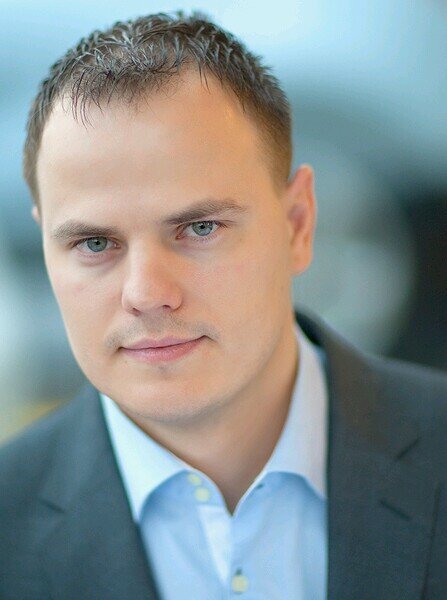
The original broadcast record available on Latvian radio 4 homepage
Transcript of the conversation in English:
| This show was prepared as part of the programme dedicated to the 100th anniversary of Latvia. |
| It’s 1960’s. Dr. Med. Habil. Aina Muceniece works with her lab colleagues at the Latvian SSR Microbiology Istitute on a new child polio vaccine. |
| Testing and analysing, they suddenly find a new virus that breaks down cancerous tumours. |
| This is how the drug Rigvir, or Riga Virus, came to be. |
| In her memoirs its creator Aina Muceniece wrote: |
| ‘Treating cancer with a virus is a wonderful idea conceived early in the last century. |
| Before World War 1, they used to treat cancer with the rabies vaccine, for example. |
| I, on the other hand, managed to find a virus that is not dangerous to humans. |
| It can be found in healthy children’s intestines. |
| Unlike chemotherapy and radiation, viral treatment (virotherapy) does not lead to severe consequences. |
| What my colleagues and I discovered in the 60’s became known to the world only in the 90’s. |
| Although Rigvir was created back in the 1960’s, it for many years never left the Latvian SSR Microbiology Institute in Kleisti. |
| The drug was made ready for manufacturing only in the 90’s when science funding in our country effectively stopped, and the Microbiology Institute was steadily nearing its demise. |
| According to RIGVIR Holding Business Development Manager Kārlis Urbans, Rigvir could be registered only in 2004, only a couple of months before Latvia joined the EU. |
| It took a long time and a lot of work before the drug could reach the market. |
| We can say already that nowhere in the world there is such long-lasting research infrastructure, so many clinical analyses and so much knowledge on how the drug is used in oncology. |
| Obviously, our problem is that it took place under a different regime, a different language was used in the documents, and today, it is all looked on as not modern enough. |
| Which is why we are often blamed for deficiencies, for the lack of research that we simply cannot prove it in a way that would be accepted today. |
| But as I said, the work done by Aina Muceniece was ahead of its time by more than 30 years. |
| The drug is based on a live culture — a natural virus. |
| It does not contain any narcotic or psychoactive substances, does not reproduce in the human body, is not excreted into the environment. |
| This wonder virus finds malignant tumours in the body and destroys them. |
| The name Rigvir is a combination of the words Riga and virus. |
| We have retrospective studies published in the Melanoma Research journal two years ago that compare earlier diagnosis percentages in the group that was treated with Rigvir and the group that wasn’t. |
| This comparison showed a 4—6 times’ higher survival rate in the group that took Rigvir that in the group that didn’t. |
| We have this study, it is published in a cited journal, and we have some excellent patient histories that show outstanding results. |
| We always say, of course, that this drug is not a wonder pill. There is no such thing in oncology: the point is that it doesn’t lower the quality of life, and that it has been tested for more than 30 years. |
| You won’t find an innovative drug today that has had this much testing. |
| It has been used for 30 years, we all know what it does. |
| But obviously there are side effects. |
| We know how it works, and because of the studies that we have, we know how it works and that it increases survival. |
| And taking two drugs to compare them is not a typical procedure for oncology. |
| Saying so is not right. |
| There is no such thing as a wonder pill in oncology, and probably won’t be, because there are no two patients that are the same. |
| This is where all the complications in this field come from. |
| Meanwhile, there are indeed examples of cancer patients being cured. |
| A number of them took virotherapy treatment and overcame their cancer — and now they are climbing Montblanc. |
| It’s not easy there, you don’t feel well, you don’t have enough strength, or air… |
| This is like a death sentence that resists treatment, nowhere else in the world |
| Why me? Why does this happen to me? You try and understand what you do wrong… Because something you do is wrong… |
| I’m not asking you how you came here. I’m asking you how come you are still alive. |
| You won’t die, what do you mean ‘people die of cancer’? A month later, I didn’t die. I thought: okay, then I must do something in my life… |
| You must fight! Let me say it in verse: ‘Your life is a fight, though sometimes it does make existence better.’ |
| I would like to use any option there is, I was convinced that if there is a poison, there must be an antidote. |
| I think that we need more people to find out that there is a cure, really is. |
| These are some of the virotherapy patients: and today, they are on the Montblanc mountain, climbing it to inspire others to fight, to show that there are ways to extend your life and even to defeat your cancer. |
| But we don’t say that it’s normally defeated, I’d say it would be reckless. |
| Such wonderful cases do exist, though they don’t always happen. But such people that have defeated cancer can inspire others who still fight. |
| And it is these people who climb Montblanc, and the foundation accompanies them. Its main goal is to inspire people who still fight. |
| As of now, Rigvir is registered in Latvia, Georgia and Armenia, and you can only buy it in these countries. Why? In order for a drug to be registered in any other European country, similar clinical trials must take place there, too. This requires enormous investments that we do not have. Meanwhile, the markets of these three countries are small, which is why the Virotherapy Centre is working on medical tourism. |
| Currently, 90 percent of our revenue is based on medical tourism, on people who come to Lativa to buy the drug. They get treatment in their own countries, because the drug can be taken on an outpatient basis. They get treatment in their own countries, and we educate doctors from all over the world: almost every week we have workshops and classes. |
| This demand that we have from abroad is one of the reasons why we could triple our revenue in 2016. |
| As I said, 90% of this is essentially medical tourism. We are exporters. |
| For Latvian patients, Rigvir is on the compensated drug list and is paid by the state. However, not all oncologists believe it to be effective. Some even advocate its removal from this list. There are quite contradicting views on this drug in Latvia. |
| But we don’t focus on that: we focus on the entire world, and unfortunately, we are more appreciated there than here. |
| Last year, we were awarded the Horizon 2020 grant by the European Commission, showing that this project is important for all of Europe. |
| This year, just a few weeks ago, we got an additional certificate of the European Commission, signed by Commissioners, that notes that the Rigvir project is very important and that it is a high quality project. |
| This is an evaluation of our potential, our possibilities, our work. |
| Because of this we say that we are accepted more in Europe and the rest of the world than here. |
| No matter how contradictory the views on the drug in Latvia are, the Virotherapy Centre is a successful Latvian company that had a profit of 2 million euros last year, and paid more than eight hundred thousand euros in taxes to the state. |
| Next year, it is planned to build a second ultramodern lab for growing the Riga virus in Riga. |
| Yelena Vikhrova, Latvia Radio 4 |
